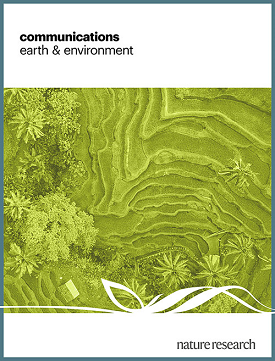Three profiles of Australian climate change activism have both unique and overlapping motivators and barriers
IF 8.1
1区 地球科学
Q1 ENVIRONMENTAL SCIENCES
引用次数: 0
Abstract
Since non-violent activism is known to be effective in achieving policy change, organisations seeking to encourage climate activism would benefit from an evidence base describing activism behaviours, motivators, and barriers among people higher, lower, and in between in terms of climate activism involvement. We surveyed 519 Australians alarmed by climate change regarding participation in 18 activism behaviours. A latent class analysis identified three activism levels: Least (23%), Moderate (55%), and Most (22%). The Most Active participants were at least 75% likely to engage in 13 behaviours. The only demographic difference between classes is that participants in the Least Active class were younger. Across classes, the most common reported motivators related to issue importance and action efficacy. Reported barriers were more behaviour-specific, with frequent references to lack of experience and knowledge for financial activism and engagement with climate organisations. Six practical applications for promoting climate activism are discussed. Australians alarmed by climate change report the same motivators for their chosen behaviors, but barriers differ across behaviors and do not depend on the individual’s breadth of activity, according to an analysis that combines a survey of 519 individuals and a statistical approach.

澳大利亚气候变化行动主义的三个侧面既有独特的又有重叠的动机和障碍
由于非暴力行动主义在实现政策变化方面是有效的,寻求鼓励气候行动主义的组织将受益于一个证据基础,该证据基础描述了行动主义行为、激励因素和气候行动主义参与程度较高、较低和介于两者之间的人们之间的障碍。我们调查了519名对气候变化感到担忧的澳大利亚人参与18项行动主义行为的情况。潜在阶级分析确定了三个激进主义水平:最低(23%),中等(55%)和最高(22%)。最活跃的参与者至少有75%的可能性参与13种行为。班级之间唯一的人口统计学差异是,最不活跃班级的参与者更年轻。在班级中,最常见的激励因素与问题的重要性和行动的有效性有关。报告中的障碍更具体于行为,经常提到缺乏金融行动主义和参与气候组织的经验和知识。讨论了促进气候行动主义的六种实际应用。一项对519人的调查和统计方法相结合的分析显示,对气候变化感到震惊的澳大利亚人表示,他们选择的行为有相同的动机,但不同行为的障碍不同,并不取决于个人的活动广度。
本文章由计算机程序翻译,如有差异,请以英文原文为准。
求助全文
约1分钟内获得全文
求助全文
来源期刊

Communications Earth & Environment
Earth and Planetary Sciences-General Earth and Planetary Sciences
CiteScore
8.60
自引率
2.50%
发文量
269
审稿时长
26 weeks
期刊介绍:
Communications Earth & Environment is an open access journal from Nature Portfolio publishing high-quality research, reviews and commentary in all areas of the Earth, environmental and planetary sciences. Research papers published by the journal represent significant advances that bring new insight to a specialized area in Earth science, planetary science or environmental science.
Communications Earth & Environment has a 2-year impact factor of 7.9 (2022 Journal Citation Reports®). Articles published in the journal in 2022 were downloaded 1,412,858 times. Median time from submission to the first editorial decision is 8 days.
 求助内容:
求助内容: 应助结果提醒方式:
应助结果提醒方式:


